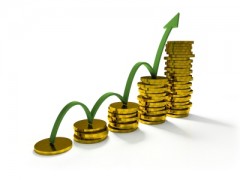Choosing A Forex Broker
 Finding a Forex broker is not that hard, but finding one that is right for you and knows how to make you money is a bit harder. Picking a Forex broker is a huge decision, since you’re placing your finances in his hands. This article will try to help you choose a broker which will meet the expectations you have from him. The terms below are used in the Forex market and when you pick a broker you should know what they mean. In some cases, they are related to questions you should ask the broker before you decide to trust him with your money. Remember, any questions you might have, the broker should be willing to answer them in detail.
Finding a Forex broker is not that hard, but finding one that is right for you and knows how to make you money is a bit harder. Picking a Forex broker is a huge decision, since you’re placing your finances in his hands. This article will try to help you choose a broker which will meet the expectations you have from him. The terms below are used in the Forex market and when you pick a broker you should know what they mean. In some cases, they are related to questions you should ask the broker before you decide to trust him with your money. Remember, any questions you might have, the broker should be willing to answer them in detail.
First of all, it’s usually important to be a big player. Because this is an over the counter market and it’s not centralized, the access to the execution quality and the prices is different for different brokers. The brokers which have a bigger financial strength and bigger volumes, usually also have better executions and prices. If you manage to get a broker that is important and well known, you have a better chance of profiting from his actions.
The term Dealing Desk describes a situation where the execution of the orders and the price setting is done by the broker. In most cases the spread will be fixed, implying that it will be a bit higher in most cases than a variable spread.
As for No Dealing Desk, this will mean that a broker will give the best prices possible and that there is a competition between different prices taking place. The banks which provide the price will execute the orders. This means that there are no restrictions on order when there are crucial trading events. There are brokers which take a commission even when there is no dealing desk, so call and make sure.
The Pip split refers to a situation where a broker offers a fractional pips. The pair usually get quotes with four decimals, meaning that a pip will be equal to 0.0001. The Pip split refers to a situation where the pip is not rounded, but shown more accurately, with the help of an additional digit.
Forex scalping is a type of strategy used on the Forex market, which refers to orders are used only for short time periods. Some brokers will have rules regarding this strategy and on the amount of time that the order will be open before being closed.
The term rollover is used when talking about the interest which is paid or earned on the Forex positions which are kept overnight. This will be negative when the currency is sold with a high interest rate, because you end up paying interest. It will be positive when the currency which is bought will have a smaller rate of interest than what you’re earning.
The term carry trade refers to the borrowing of currencies which have a lower interest rate (the yen is an example), which is then used to purchase currencies which have a higher interest rate (like the Australian dollar). It’s a type of strategy which uses rolls and positive leverage. Using leverage can be dangerous, since your losses can increase considerably, so be careful with it.
Hedging is a term which describes a situation where you’re opening a position at the same time with the purchase and selling position of that same pair. A lot of people seem to think that hedging makes it all safe, but this tactic will only reduce the amount of risk, it will not drop it to zero risk.
The amount of risk that the broker takes and how much leverage he will use should also be discussed with him. You can use high leverage like 300 to 500, but it can be dangerous. This allows you to control more capital than what you’re depositing, so you make more money. If you want to make a lot of money quickly and you’re willing to risk all the money on one or more trades, leveraging can help you do it.
Finally, you want to make sure that they have a good customer service. Since the market is open non-stop, you will want to know how your broker is available. You will want to know that they answer all questions quickly and that you always know what’s going on with your account.
